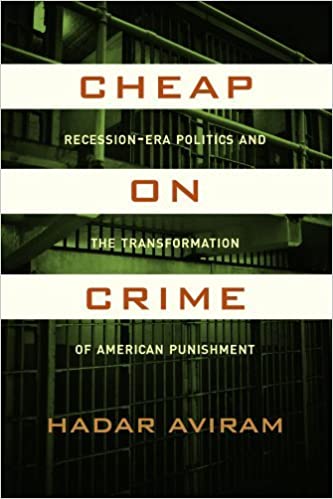
After forty years of increasing prison construction and incarceration rates, winds of change are blowing through the American correctional system. The 2008 financial crisis demonstrated the unsustainability of the incarceration project, thereby empowering policy makers to reform punishment through fiscal prudence and austerity. In Cheap on Crime, Hadar Aviram draws on years of archival and journalistic research and builds on social history and economics literature to show the powerful impact of recession-era discourse on the death penalty, the war on drugs, incarceration practices, prison health care, and other aspects of the American correctional landscape.
“After decades of stability, mass incarceration is suddenly shapeshifting with enormous speed. Long-held debates are quickly becoming outdated. Aviram has provided us an incisive analysis of this transformation in progress and a lexicon for the new language of carceral power.”

"Thought-provoking and notable work... Cheap on Crime documents how market values have come to dominate the discourse on American corrections since the Great Recession. A welcome edition to the literature at the intersection of economics and criminology."
Larry KarsonSocial Science Journal
“Masterfully interrogates the economic logics that underpin our America’s massive penal crisis in the wake of the Great Recession. Aviram offers a wonderfully rich analysis of the emerging ‘cheap on crime’ ethos.”
Mona LynchProfessor of Criminology, Law, and Society and Law, University of California, Irvine
Previous
Next




No comment yet, add your voice below!